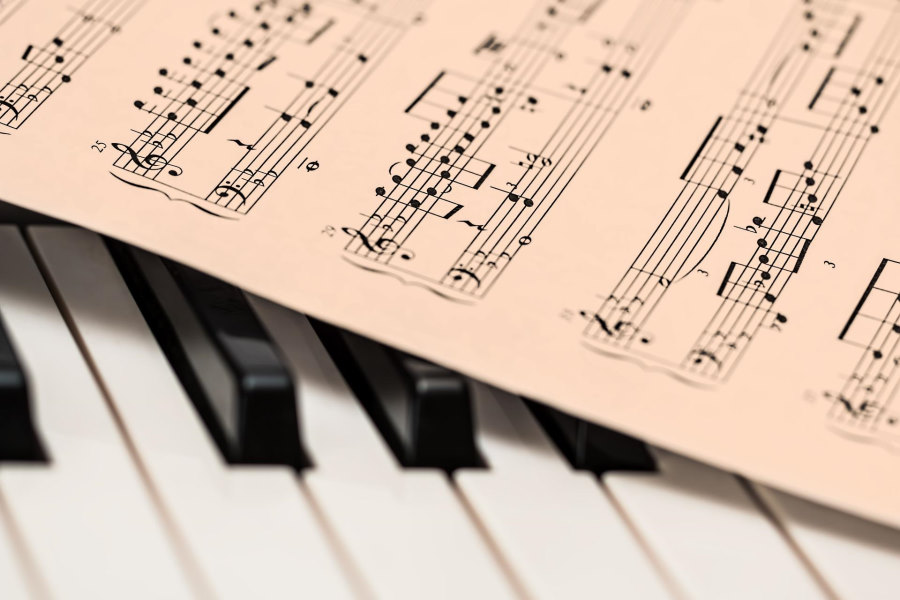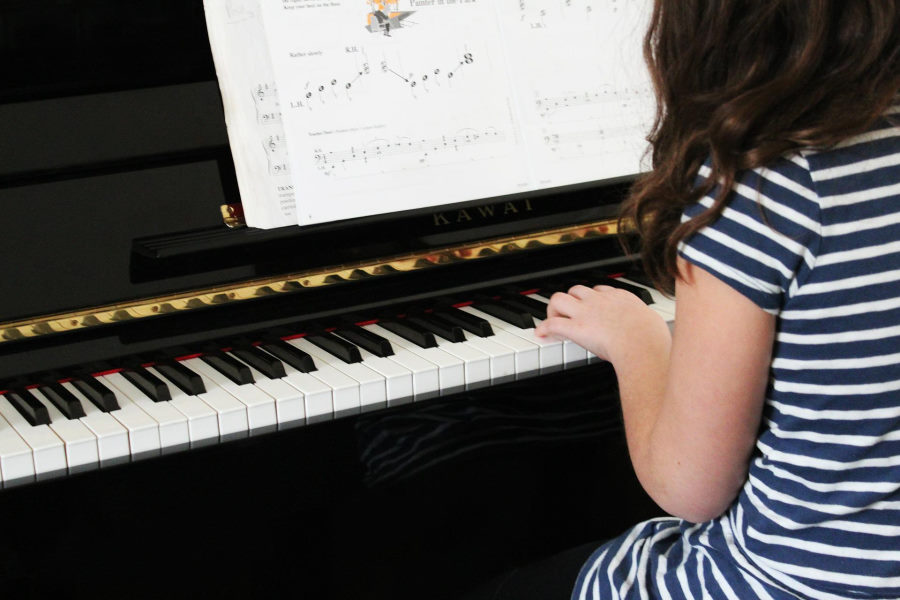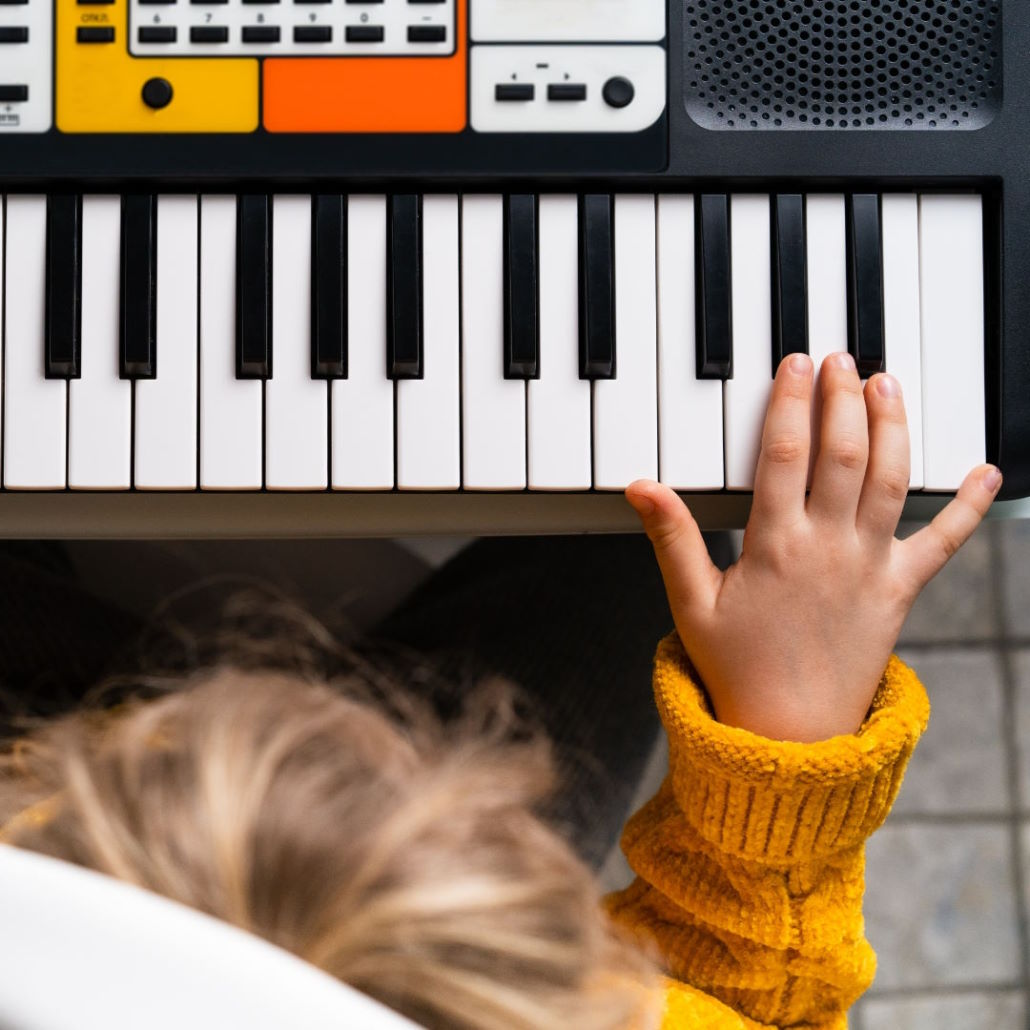7 Reasons to Enroll Your Child in Piano Lessons
Especially at a young age, piano lessons are a great way to instill practical life skills in your children that they’ll harness well into their adult life. These life skills will translate directly into your child’s development – everything from school to sports to the way the carry themselves out in the world. Piano lessons can be a difference maker.
When it comes to early music education and lessons, the piano is frontrunner for a reason. On top of the critical life skills your child will learn, there are also musical reasons why piano is the most popular type of music lesson.
Here are 7 reasons to enroll your child in piano lessons:
1. A more complete musical education

You often hear that all other instruments become easier to play after your first learn the piano. And it’s true.
The musical differences in the piano vs. other instruments are often overlooked, but worth noting if you’re trying to decide on which type of music lessons to enroll your child in.
To start, the piano teaches both the bass and treble clefs, when most instruments only teach one. The piano also allows you to play many notes at once and produce a vast combination of sounds, while most instruments allow you to play just one note at a time. Lastly, the piano allows you to play in several octaves – to the ear, the lowest and the highest octaves are very far apart.
Because of this, by learning the piano your child will develop a deeper understanding of music and harmony. Their musical ear will be trained to fullest extent.
2. Instill self-discipline
Perhaps the most frequently cited and well-known reason to enroll children in piano is discipline – and for good reason. The discipline required to learn the piano, like many things, is far-reaching.
The piano is not easy. With a range of 88 keys, an extensive glossary of Italian terminology, and a long list of other symbols, there’s a lot of memorization involved. It also makes reading the sheet music a whole other challenge.
But aside from reading the music on the page, there are mental and mechanical demands that require a lot of effort. It’s one thing to read the music, but to bend and twist your wrists and fingers to find the notes – all in real time, is something else. Once you’ve got that down, throw in a second hand and eventually some foot pedals, and you’ve got a very demanding mind/body connection happening.
To learn all this will require practice – and a lot of it. That’s where the discipline plays in. Learning the fundamentals of piano theory, to read sheet music, and to develop the mind/body connection will require gradual learning and daily practice.
3. Deep focus

In a world where our focus is being constantly interrupted, enrolling your children in piano lessons is a great way to remove them from that distraction for a while. Removing yourself from something stimulating like video games or social media to sit down and do something hard is challenging in itself.
Learning the piano takes deep focus for extended periods of time. Each note requires a concentration and focus. Even if your child spends 15 minutes a day dedicated strictly to the piano – reading and playing music, that can go a long way.
If your child can sit and focus on something challenging like learning the piano, imagine what else they’ll be able to focus on.
4. Build their confidence
Another big reason to enroll your children in piano lessons is the confidence it can provide. If your child is able to learn and perform something difficult, like a song on the piano, it will give them the feeling of “I can do this”. That feeling will translate to other aspects of their life.
If your child has the opportunity to perform at recitals or in front of their peers in some capacity, that’s another chance to build their confidence. For many children, it will be their first time performing in front of a group of people, but once they realize they can do it, it will make them more confident communicators and more optimistic in the face of other challenges.
If you choose to take the Royal Conservatory of Music route with advanced curriculum, examinations and grading, the confidence your child will gain is even deeper. Plus, they’ll be able to measure their progress and feel a sense of accomplishment as they move through the levels.
5. Develop listening skills
Another important skill learned from piano lessons is listening. And it’s two-fold.
Because piano lessons are often one-on-one, lots of listening to the instructor is required. And in this dynamic, there isn’t a lot of two-way communication. Your child will have to distill information coming from the instructor, process it, and translate that message to their hands.
On top of that, your child will develop listening skills from the music itself. Their ear will become trained to the music. They’ll know what sounds right, what sounds off, and what sounds are missing. This is a rare skill that can only be developed by learning to play the music – not just listen to it.
6. Build a productive routine

Learning the piano will take time – regardless of what level you’re at or how old you are. It will demand a regimented practice routine, even if it’s just for 15 minutes per day. Over time, routine will instill a positive feeling of productivity and organization into your child’s day.
By developing a productive routine, your child will gain mental clarity and reduce feelings of anxiety and stress.
A productive routine that includes practicing the piano will be far more beneficial, even if it’s just for 15 minutes per day. The time spent practicing will be leaps and bounds more productive than any amount of time spent playing video games or scrolling through social media.
7. Develop skills for life
Perhaps the underlying theme for each of these reasons to enroll your child in piano lessons is the valuable skills they’ll develop. And not just any skills – practical life skills that will carry over to other aspects of life, including sports, academics and eventually their career.
These skills will certainly make them more adept at doing other things, but they’ll also help turn them into better people. The discipline learned will make them patient and driven. The confidence learned will make them motivated and happy. The list goes on.
Ultimately, learning the piano is such a valuable chance for children to develop themselves and their minds. They’ll learn lifelong skills for the real world, while developing an ear and appreciation for music.
If you have the opportunity to enroll your children in piano lessons, take advantage of it.

